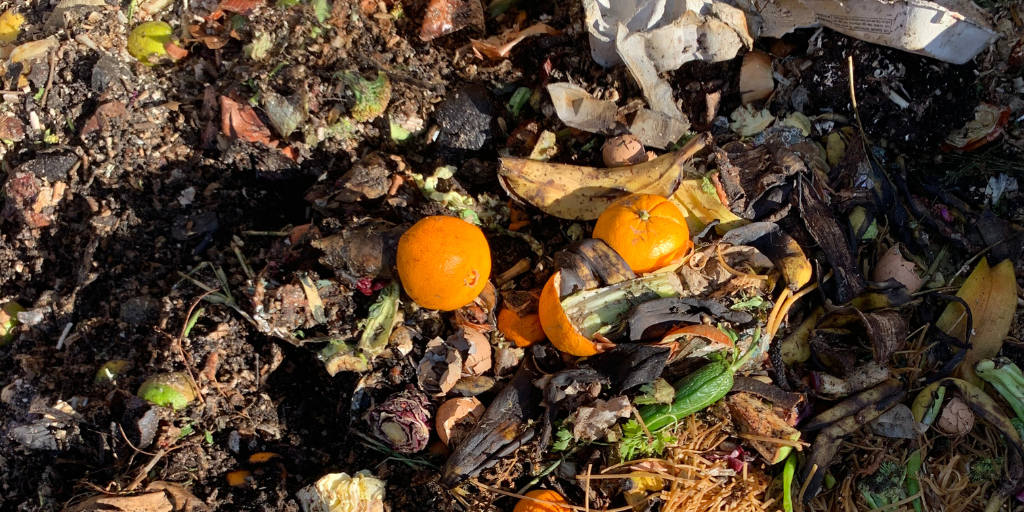
Today, April 24, is National Stop Food Waste Day. While we believe it is important to reduce your waste from the start, composting can be an effective solution for reducing our waste on a personal level and reducing our effects on climate change. This blog from our Summer 2023 intern, Brian Shah, explains why!
Food is the largest category of waste in the United States. It represents about a quarter of all municipal waste, according to the EPA. Composting has the potential to essentially recycle all food waste. Adding these nutrients to soils allows the uptake by new plants. In this way, compost keeps carbon and other nutrients in the soil and increases soil biodiversity which is better for the planet. Additionally, the soil is better for growing plants as it limits the need for pesticides and fertilizers and even reduces water use. And finally, composting lowers greenhouse gas emissions because it sequesters carbon in the soil and reduces methane emissions which would normally be released in a landfill, but breaks down from the presence of oxygen in a compost pile. Despite these benefits, composting is underutilized as the EPA estimates that less than 5% of food waste is composted. This percentage is too low and raising it would make a big difference for the planet.

The whole composting process can be done in your own house without much effort. Start by collecting food and vegetable scraps, coffee grounds, eggshells, and other organic food. For composting at home, avoid meat, dairy products, and oils, since they do not break down at the same rate and attract animals. Take note that these items can often be composted at industrial composting sites. However, to bulk up at-home composting, collect leaves, plants, and wood chips from the yard while avoiding composting diseased plants, weeds with seeds, and treated wood. After collecting these materials, choose a compost bin or create a pile in the backyard, which only needs to be mixed every so often, and watch as these materials break down into rich composted soil.
Some residences on the East End have access to public composting programs. This is a great alternative if you do not have the ability to compost at your home! Each location is different, so make sure to follow the link to each location’s information page to learn more about what they accept for composting:
- Town of Riverhead—532 Youngs Avenue in Calverton, Thursday through Monday, 7 a.m. to 3:30 p.m. This free compost program is only available to residents of the Town of Riverhead.
- Town of East Hampton - Springs Farmers Market on Saturdays, 9 am to 1 pm and Sag Harbor Farmers Market on Saturdays, 10 am to 12 pm, seasonally until the end of September. They are also teaming up with another option at the Amber Waves Farm. Sign up through the East Hampton Compost website linked above!
- Hampton Bays: Ecological Culture Initiative—81 Lynn Avenue, Hampton Bays. Join through the website above. You must become an ECI member for $50 a year and pay $30 for each composting season.
- North Fork: Rewild Long Island is starting a community composting program with their North Fork Chapter. Reach out to NorthFork-Leads@ReWildLongIsland.org for more information!
In reaching out to multiple farmers markets and farms across the East End, these were the only publicly available composting programs we could find. We need more, so try reaching out to local farms and farmers' markets to tell them about the value of compost. Or start your own compost at home today!

